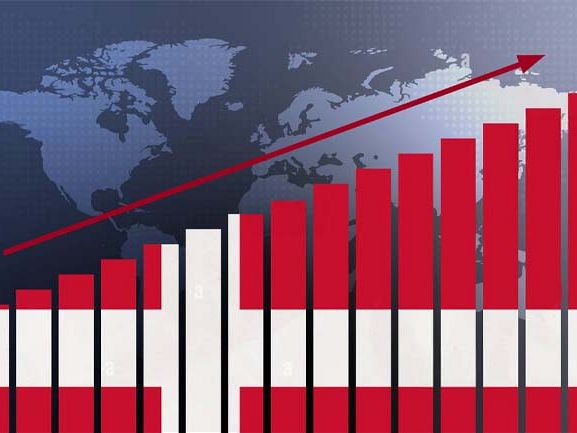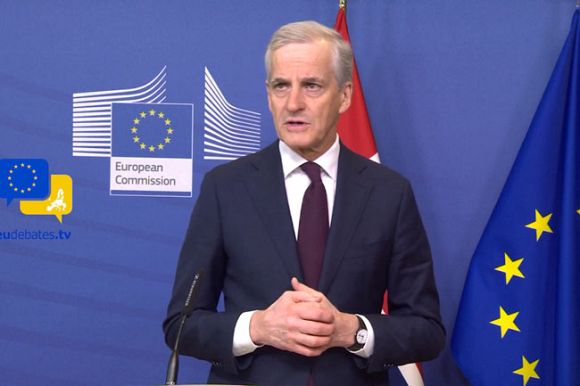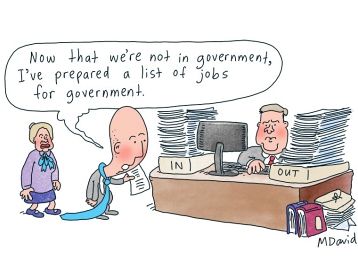The Independent Australia ranking on economic management (IAREM) for 2025 affirms progressive policies worldwide, as Alan Austin reports.
DENMARK HAS the world’s best-performed economy for the first time in the 19-year period through which this series has ranked economic outcomes, going back to 2007. Australia has advanced from seventh place to fifth. The USA has tumbled out of the top 20, but no longer has trustworthy data anyway.
World’s top ten economies
In order, the best-managed economies in 2025, with IAREM scores achieved, were:
Denmark: 30.29
Norway: 29.3
United Arab Emirates: 25.12
Luxembourg: 21.26
Australia: 19.4
Switzerland: 19.08
Ireland: 19.01
Oman: 18.78
Hong Kong: 17.84
Malta: 16.86
Denmark, Norway, the UAE, Australia, Switzerland, Oman and Hong Kong were all in the top ten in 2024. Ireland rose from 20th last year to seventh on strong growth in gross domestic product (GDP) and lower inflation. Luxembourg is up ten places and Malta up two on stronger economic growth and increased wealth.
The next ten, in order, were:
Taiwan: 16.83
South Korea: 16.36
Singapore: 16.11
Vietnam: 14.69
Malaysia: 13.43
Netherlands: 11.57
Canada: 11.19
Saudi Arabia: 10.73
Thailand: 9.93
Croatia: 9.11
Surprise winners here include Vietnam, Malaysia and Thailand, with strong GDP growth and low unemployment.
(Chart by Alan Austin)
The IAREM score
The Independent Australia ranking on economic management is a composite index that measures all major economies on eight indicators. These are national income per person, GDP growth, median wealth per adult, jobs, inflation, taxation rates, budget balances and government borrowings.
The formula can easily be replicated with basic spreadsheet software:
IAREM = ip + gr + mw + j – in – t – bb + gb.
This is the world’s only index of overall economic performance using multiple variables. The data comes from the International Monetary Fund (IMF), the World Bank, Swiss bank UBS and Trading Economics. Supplementary data, where required, is found in the CIA Factbook and elsewhere.
Danish politics mirror Australia’s
Denmark and Australia have two main political parties that take turns to run the country. So far this century, Denmark has changed governments four times, with the centre-right Venstre Party governing for nearly 14 years. The reformist Social Democrats have held office for almost 11 years, including the last six.
Australia has had three changes of government, with the conservative Coalition governing for nearly 16 years and Labor for nine, including the last three.
Economies in both countries improve significantly under the reformist parties, as this year’s IAREM results confirm.
Australia reached fifth place this year, up from seventh last year and 13th in 2023. This is due to lower inflation, reduced taxes and the improved budget.
Cycling to victory
Denmark’s economic ascendancy since the 2019 change of government has been remarkable. Prior to 2015, the ranking was consistently outside the top 30. By 2019, the ranking had climbed to 20th, after which the economy surged. From 11th in 2020, Denmark clambered to eighth in 2022, then fifth in 2023 and second last year.
This is quite impressive given that Denmark has close to the highest taxes in the world, has only a small industrial base and, unlike its rich Scandinavian neighbours, has very little oil or gas.
Several reforms have contributed to this transformation. Strong unions negotiate collective bargaining agreements that ensure high salaries despite no legislated minimum wage.
The shift to wind power and other renewables has cut energy costs. Rapidly increased exports of pharmaceutical and medicinal products have boosted national revenue. See chart below.
(Data source: Trading Economics)
Our favourite explanation, however, is that in recent years the Government has invested billions of Danish kroner in infrastructure for bicycles.
According to analysts, including Economics Explained, cycling makes people healthier, less stressed and more productive:
“And on top of the personal perks, biking has helped Denmark reduce traffic, improve air quality and slash commuting times, making life easier for workers and the economy more efficient.”
The USA collapsing
The U.S. economy, in contrast, dropped from 19th place last year to 24th with slower economic growth, deeper debt and declining income per person. Given the folly of President Donald Trump’s ever-changing tariff announcements, his repudiation of long-term trade treaties and his destructive obsession with shifting wealth and income from the majority to the mega-rich, this collapse will almost certainly accelerate.
Regrettably, this column has reached the conclusion that data published by the USA is no longer accurate. This arises from two observations.
First, the latest official data showing unemployment in June lower than in May does not accord with verified outcomes. Nor are official inflation figures consistent with reality.
Second, it has been clear from the outset of the Trump Administration that senior personnel in key positions are required to lie routinely on behalf of the President.
We now hold the same reservations regarding U.S. figures as with those published by North Korea, Turkiye and Russia. We will continue to use the published data, but will flag our scepticism.
High taxes no problem
This year’s IAREM results challenge the neoliberal and libertarian schools which assert high taxes cripple national economies. Of the 70 economies surveyed in this year’s analysis, Norway had the highest tax take, Denmark had the fifth highest and Luxembourg sixth. Clearly, high tax rates are no obstacle to outstanding overall outcomes.
Another lesson has emerged. For a sound economy, switch to bicycles.
Alan Austin is an Independent Australia columnist and freelance journalist. You can follow him on Twitter @alanaustin001.
Support independent journalism Subscribe to IA.






